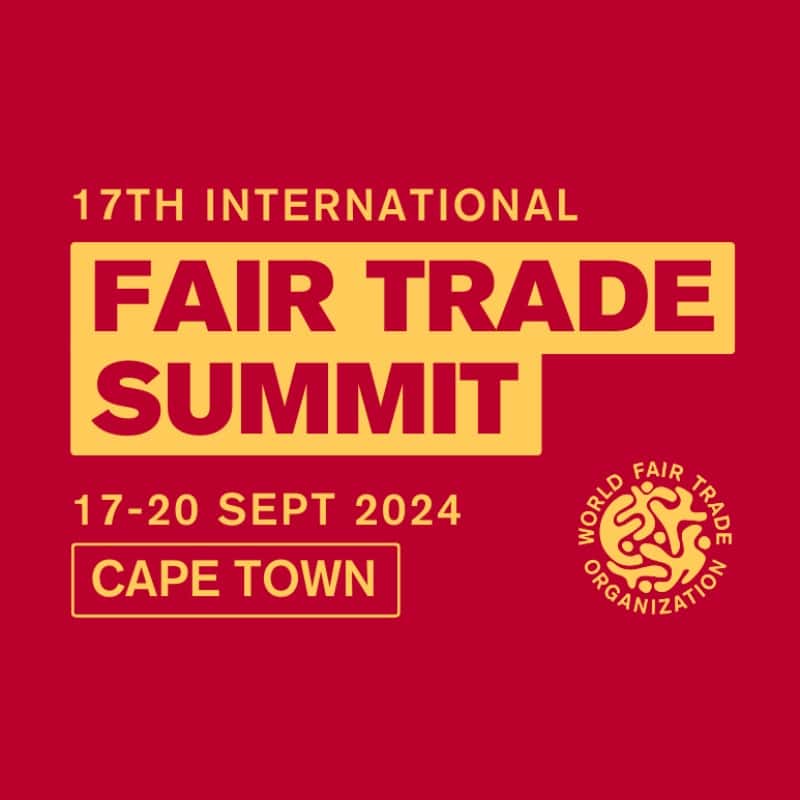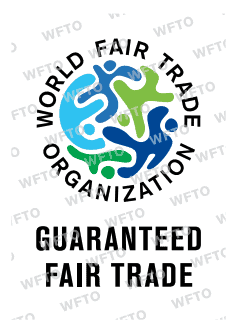Fair Trade Enterprises Are Fighting For Gender Justice Through An Inclusive Business Model
On the occasion of International Women’s Day on the 8th of March, we are campaigning to promote gender justice, understood as the full equality and equity between women and men in all spheres of life.
While mainstream business remains to be a man’s world, perpetrating gender injustice practices and discourse, the WFTO Global community of Fair Trade Enterprises relentlessly works to dismantle the deep-rooted male-dominated business model that fosters competition over collaboration and hierarchical structures that often prevent women from reaching their full potential.
As WFTO, we know that gender justice cannot be achieved through the betterment of women’s socio-economic conditions by legal means only. Without corrective behavioural action that targets different audiences, and especially institutions and stakeholders, substantial systemic change won’t be ensured. Legislation is a fundamental step in uprooting exploitative practices from the current economic system, yet often not enough to truly implement change. As WFTO we want to showcase how, even when the violation of human rights is in everyday mainstream business model, Fair Trade Enterprises, and especially Micro, Small, and Medium Enterprises (MSMEs) are already proving that a different system and reality for women is possible.
WFTO Fair Trade Enterprises advocate for an economic model where women are not underpaid or silenced, but have equal access to economic and social opportunities. That’s why we wanted to hear especially from those often female-led, women-owned SMEs about how they experience their fight for gender justice. Their answers gave us a grounding reflection on some of the struggles that women still are facing today.
“It is probably the most important task we have to better societies in general. The basic act of having your own income as a female is essential for empowerment and contribution to societal progress” – Lanka Upcycles, fairly traded recycled plastic products that aims to improve the livelihood of communities on Sri Lanka’s East Coast.

All of the WFTO Guaranteed Fair Trade Enterprises participating in our survey have witnessed an increase in the number of women working in their enterprises in the last five years. This data mirrors the rising wave of women gaining the economic space that they deserve. Demolishing those barriers that hamper women from contributing to society in equal measure as men is pivotal for developing a just new society. Empowering women is at the centre of flourishing a new sustainable economy, also stated by our members.
“Women feel capable to support their families not just through nurture but economically. Being able to find their independence and role in the community and use it for good. Lifting other women up.” – Yabal’, Fair Trade organisation focused on sustainable fashion and supports indigenous women’s weaving in Guatemala.

However, talking about women’s opportunities and the defence of human rights goes often hand in hand with certain lines of discussion. What is in practice, “empowerment”? Should it be focused only on better employment status? Or on better education and human capital? Or a deeper cultural change? As WFTO we believe that systemic change to ensure women’s agency to the fullest is threefold:
- Political, for which we advocate for better legislation that support the growth of MSMEs
- Economical, to uproot mainstream businesses from the economy and replace them with impact-driven SMEs
- Cultural, aimed at changing civil society’s mindset around those gendered discourses that define our behaviour
For this specific reason, feminists and activists, including WFTO Guaranteed Members who advocate for better conditions for women, circle uncomfortably around the use of “empowerment”: defined as the capability of women for self-determination, this term often sounds empty and not practical enough for truly achieving gender justice. Mission-driven WFTO Fair Traders also acknowledge a certain amount of discomfort in using such words:
“The term implies that women, like me, are weak. I rather use ‘create equality of opportunity’. I wish the term had changed, as it still means we need help to succeed.” – Bebemoss

A systemic and holistic redistribution of power relations needs to take place. For this reason, we as WFTO advocate for a business model where women have the space and equal opportunity as men to take leadership roles, grow their professional and personal skills, and aggregate to fight for their human rights to be respected and make everyone’s voices heard. As social agents continuously exposed to cultural-, economic-, or political- constraints, women bring a unique intersectional experience that can truly push for change from within. As Fair Trade Enterprises, we know this and want to serve them to amplify their presence, message and strength.
“To improve the empowerment of women, we have to create the opportunities to achieve their aim by boosting their self esteem and education”. Global Mamas
“We need to provide comprehensive training options, easy access to funding and most importantly flexible work opportunities so that they can conciliate their roles as mothers and workers”. Bebemoss
by Isabel Romijnders
Photo credits: Global Mamas, Rice and Carry/Lanka Upcycles, Yabal Handicrafts, Bebemoss
Share This Post
Tags
Contact
- Parallelweg West 9A, 4104 AX Culemborg, The Netherlands
- +31649086439
- info@wfto.com
If you want to contact any of our staff members (not Board) please write to the First Name (ex: Paul)@wfto.com
© 2024 World Fair Trade Organization. All Rights Reserved.

